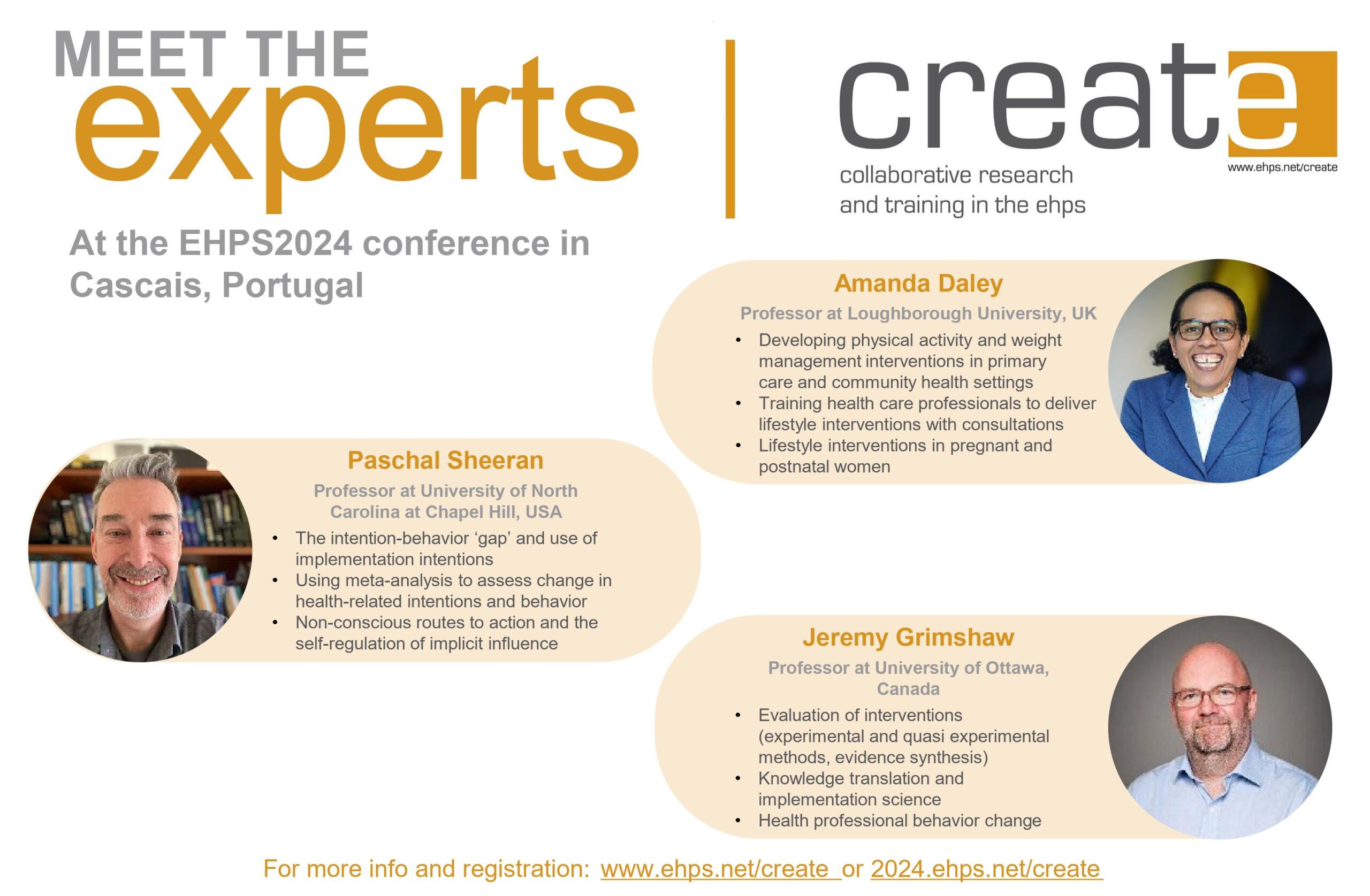CREATE Meet the Experts

Meet The Experts 2024
Meet the Expert offers an exciting opportunity for early career researchers (ECRs) to discuss their ideas and interact with established experts in a relaxed environment among other interested ECRs. The MTE sessions involve a small group of ECRs chatting with one expert about their shared research interests. A total of three MTE sessions will be organised during the conference programme with this year’s keynote speakers.
ECRs are now invited to apply for an MTE session. You will be asked to provide some information about yourself and to indicate up to two experts you would like to meet with. To ensure a good fit between participants and experts, the application form will ask you to provide a short statement on why you want to meet with the expert(s) you selected (200 words).
Places are limited. Please note that you can indicate up to two preferred MTE sessions and we will aim to link as many applicants as possible with their first preference. While making every effort to do so, if there are more applicants than there are spaces available in a session, priority will be given to researchers at earlier career stages and those who have not attended an MTE session previously. Remaining spaces will be assigned based on the motivational statement.
Sign up here by 16th August 2024: Meet The Expert 2024 Application Form
This year’s experts, with more details on their specific areas of interest, are outlined below.
Amanda Daley, Professor at Loughborough University, UK



